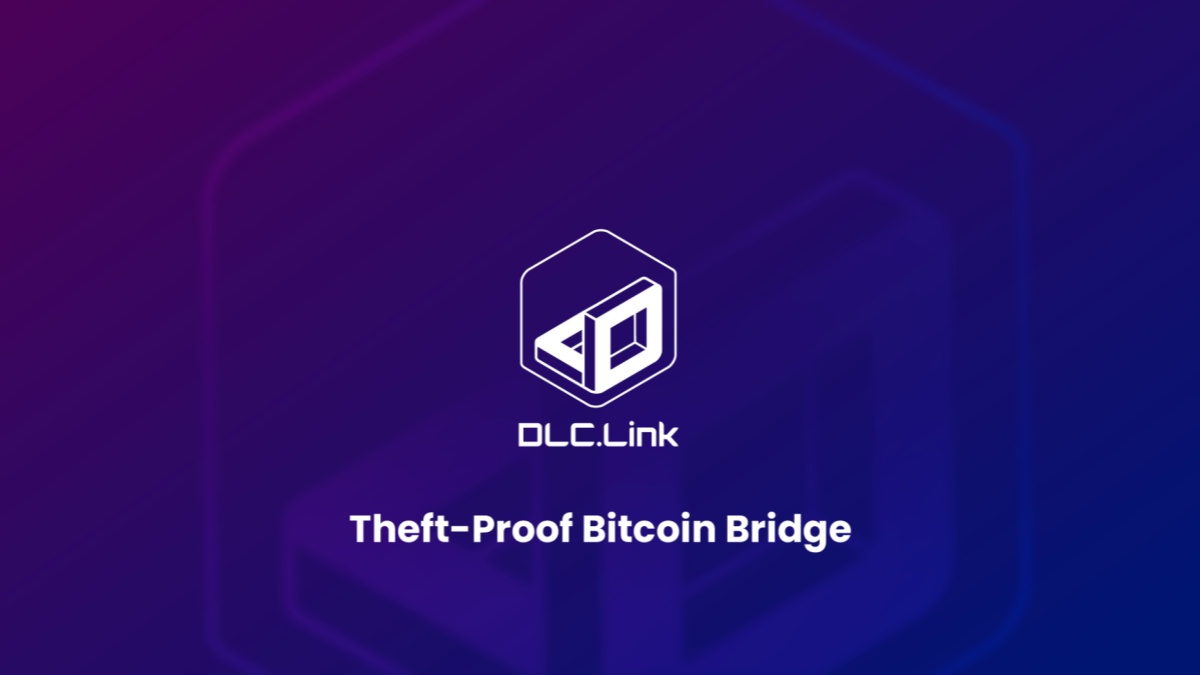Bitcoin embodies decentralization, security, and self-sovereignty. But today, financial transactions with Bitcoin require the use of custodians or bridges—a reliance on intermediaries that has led to disastrous losses numbering in the billions. Discreet Log Contracts (DLCs) are poised to change that.
Originally proposed in 2018 by Tadge Dryja, the co-inventor of the Lightning network, DLCs enable new decentralized financial applications while keeping Bitcoin deposits safe. DLCs allow two parties to make conditional payments based on predefined conditions. The parties identify possible outcomes, sign them beforehand, and use these pre-signatures to execute the payout when the outcome is known.
Let’s walk through an example to illustrate the mechanics. Alice and Bob wish to enter into a DLC, and they select a third party (“Olivia the oracle”) to referee their transaction. They agree on two potential outcomes: either all of the BTC moves to Alice or all moves to Bob. Both Alice and Bob pre-sign transactions for these outcomes, securing their commitments.
When the loan term ends, Olivia publishes an “attestation” that activates the corresponding pre-signature. Either party can then execute the contract to transfer Bitcoin to the winning party. Most importantly, Olivia is not a party to the transaction. She does not know who the participants are, the amount of Bitcoin locked, or any other transaction details.
Take this one step further. Let’s say that Olivia isn’t a single entity but is instead split into three separate actors. First, a decentralized oracle network (such as Chainlink or Pyth) aggregates Bitcoin prices from a myriad of third-party data sources and calculates a reference price, which they publish on-chain (e.g. on Ethereum). That price is read by a smart contract in a DeFi protocol, which can trigger execution logic. For example, when the price falls below a certain threshold, the smart contract can fire an event to signal a DLC attestor. The Attestor is an off-chain service that verifies the on-chain signal and publishes the DLC’s “attestation,” thus triggering the movement of Bitcoin.
Using this system, DLC can be used to secure Bitcoin collateral for a stablecoin loan. The pre-signed logic within the DLC enforces redemptions and liquidations using smart contract logic that can be verified on-chain. Most importantly, this eliminates the need for a third-party entity or bridge to hold custody of the Bitcoin.
The DLC community has designed various applications around Bitcoin lending, trading, and investing. To mention a few thought leaders:
1. DLCs for Trustless Loans: Platforms like Lava.xyz and Arkadiko.finance are pioneering the use of DLCs for lending, allowing Bitcoin holders to take stablecoin loans without requiring a counterparty to hold funds.
2. DLC-based Trading: Atomic.finance and 10101.finance use DLCs to execute passive trading strategies that generate a return on self-custodied Bitcoin.
3. Cross-chain DeFi: We at DLC.Link build middleware that integrates DLCs into third-party Bitcoin wallets, enabling native Bitcoin deposits into DeFi protocols.
Using a DLC-enabled DeFi protocol involves two primary risks: currency exchange risk and smart contract risk. Currency exchange risk can trigger liquidation if the BTC-USD rate drops significantly. Smart contract risk pertains to potential flaws in the chosen protocol. In either case, the pre-signature in the DLC enforces liquidation, leading to a loss of collateral.
Nevertheless, for those looking to invest their funds while HODLing, or for Bitcoiners in need of an emergency loan, DLCs offer a more secure option. Billions of dollars in Bitcoin collateral have been lost due to centralized custodians who went bankrupt or to bridges that were compromised. By locking directly on-chain, DLCs provide decentralized escrow secured by the full hashrate of the Bitcoin network.
Future DLC developments include locking BTC to mint NFTs used in Real-World Asset lending, locking Ordinals to enable advanced trading logic and cross-chain transactions, implementing DLCs on the Lightning Network to enable conditional payments with Taproot Assets, and creating BTC-backed stablecoins.
To join in the technical conversation around DLCs, join the DLC Telegram group at https://t.me/BitcoinDLCs. At DLC.Link, we’ve also put together a number of explanatory videos and content that you can read on our blog (https://www.dlc.link/media) and on our YouTube channel (https://www.youtube.com/@dlc-link). We’d love to hear your feedback and questions. Visit our website at https://www.dlc.link/, join our Discord, or follow us on Twitter (https://twitter.com/dlc_link) to learn more.



